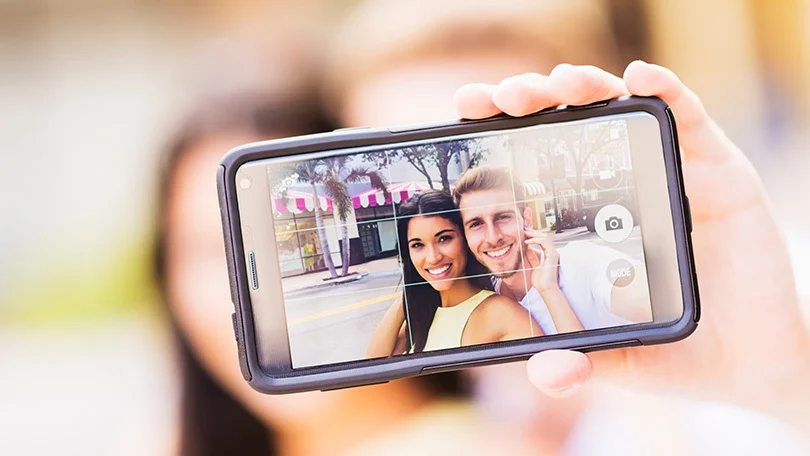
Photographers say the best camera is the one you have with you. For most of us, that’s the smartphone we always have near at hand. Today’s smartphones make it easy to capture those special festive season memories with friends and family, or those wonderful times on holiday. With a bit of patience and understanding of how your phone’s camera works, you can take shots that make you look like a pro.
TCL offer a few tips and tricks on using your Android phone’s camera to take better photos:
- Choose the right mode for the shot
Choosing the right camera setting for the pic you want to take is the first step to getting a great photo. Portrait is great for shots of people. If you want to capture a cityscape or a natural landscape, panorama mode might be best. And if you’re taking a night picture, choose Night Mode which helps reduce noise when shooting in dim environments or at night time.
- Remember the rule of thirds
In photography, the rule of thirds divides a photo into nine equal parts, split by two equally spaced horizontal and vertical lines. Aim to place the subject of your photo in the left or right third of an image, leaving the other two thirds more open. This is a nearly foolproof way to get a nicely composed photograph. You can use gridlines in your phone camera to balance your shot using the rule of thirds. You can enable gridlines in your phone’s camera settings (you can find this option under “Grid” or “Grids”).
- Try a gimbal
It can be tricky to get a level, shake-free photograph from your smartphone. If you find that your pics are a bit slanted or blurry, try using a gimbal. This is a small device you can use to stabilise your camera before you take a snap. Gimbals are also useful when you want to take a pic from a low angle or an unusual position.
- Use natural light to your advantage
Natural lighting, especially the golden hour after sunrise or before sunset, produces the best looking pics. If you need to take a pic inside with limited natural light, try turning on some lights or lamps. Your smartphone most likely has a flash, but use it only as a last resort because flashes can be harsh on skin tones and create unwanted shadows.
- Avoid digital zoom
Digital zoom is a camera feature that allows you to zoom in on your subject. It can make your photos look blurry and pixelated. If your phone has optical zoom, use that instead. If you don’t have optical zoom, try taking a picture with a wider lens aperture. Then, you can zoom in on the details you’re interested in when you edit the photo. You’ll get much sharper results.
- Find a different angle
Lots of smartphone photos are taken straight-on or from a bird’s key perspective. Using an unexpected angle can make your photo stand out. Try a low angle shot, looking up at your subject from below, to make them seem bigger. Shoot down from a high angle to a more dramatic shot of your subject and their environment. And if you have a macro camera lens, you could take extreme close-ups for capture some unusual textures and details.
- Capture detail with HDR
HDR (high dynamic range) captures a lot of detail in a single photo. It works by taking multiple photos at different exposures, then merging them into one image using the software. This allows you to capture details that would otherwise be lost in shadows or blown-out highlights.
- Remember that editing can make an average photo great
Your smartphone will offer a range if editing tools that you can use to crop, lighten or darken your photos. You’ll also find filters that can help you quickly apply a look to your photo without any effort at all on your part. These tools are simple to use and can really elevate your pics to the next level. If you want to achieve professional-level results, you can use apps like Lightroom, Picsart or Pixlr to enhance nearly every aspect of your photos, from simple touch-ups to a range of artistic effects.
INFO SUPPLIED.

